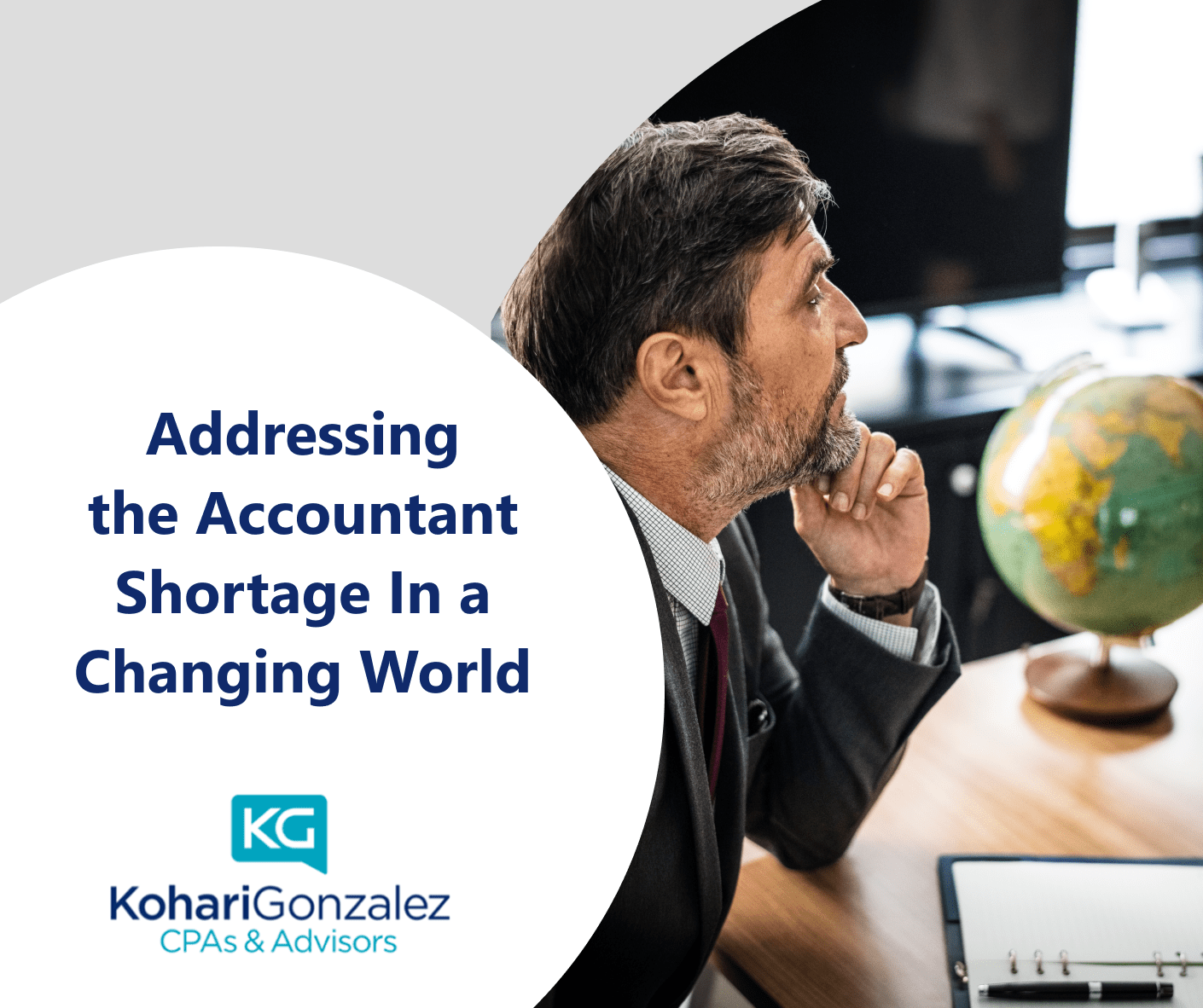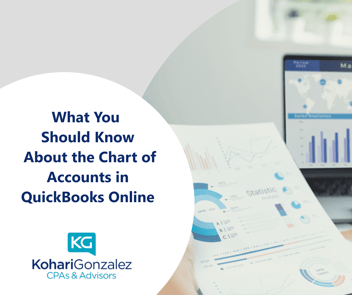
While technology firms are laying off thousands of workers, companies of all types and sizes are in a war for talent in another STEM-related (science, technology, engineering, and math) field: accounting. The demand for accountants is soaring across industries, from international corporations to local CPA offices anticipating retirements. However, the current shortage of accountants is leading to major cross-industry problems. Here, we explore the reasons behind declining interest and highlight strategic initiatives by educational institutions and accounting firms.
Why Accounting?
"It's never been a better time to go into the field," Michael Decker, Vice President of the CPA examinations for the American Institute of CPAs, told U.S. News and World Report. "With the layoffs and volatility in technology, accountants, business professionals, and CPAs will always be employed. You can take that CPA wherever you go, whether audit, tax, or finance. I don't think there's ever been a better time to achieve that stability in a career."
A recent survey of executive-level managers at large companies conducted by KPMG, a U.S. audit, tax, and advisory firm, revealed that 83% found it difficult to recruit tax talent in the past year. Decker acknowledges the need to reevaluate how accounting is promoted, saying, "Maybe we need to do a better job of selling the attractiveness of it."
As we'll discover in the next section, efforts are underway to reshape perceptions and emphasize the value of accounting.
Attracting STEM-Oriented Candidates
To counter declining enrollments, educational institutions are targeting STEM-oriented candidates. Decker highlights ongoing initiatives, "There is a huge war for talent... they want curious, intelligent, critical-thinking young folks." Hybrid programs and scholarships aim to make accounting more appealing to a diverse group of students.
Recruitment goes beyond traditional skills - firms seek candidates with diverse backgrounds. Decker stresses the importance of a broad skill set, "If you come out of school knowing those things, you're going to get hired."
Howard University's Center for Accounting Education intentionally designs pipeline programs that prepare students to enter the accounting profession at various levels of development. In the same U.S. News and World Report piece, Jean T. Wells, CPA, Associate Professor of Accounting, explains their efforts, "These programs are essential in empowering students... to select accounting as a major and ultimately a rewarding career."
Support From Accounting Firms
Recognizing the need to attract and retain talent, accounting firms have begun enhancing the support they provide for young prospects. Decker notes, "The firms with the best practices have been increasing their starting salaries, they've increased the starting bonuses, they help pay for the exam and the test prep, they treat new employees coming in as a cohort so they group them together, and they work together and study together and prepare for the exam together."
He says that mentorship and advocacy from professionals in the field also help accounting grads stay in the field and work toward their CPA.
"One of the disappointing statistics is we're seeing about 40% of accounting graduates going on to sit for the CPA exam, where it used to be 60%," notes Decker. "We have some initiatives to drive flexibility to showcase what accounting really is. The firms have a lot of initiatives around work-life balance, culture, and diversity initiatives." The goal is to "promote the profession and provide flexibility but without reducing rigor," he says.
Firms of all sizes are also trying to attract more STEM and finance graduates into the field. "You don't have to have a bachelor's degree in accounting, you just have to have enough hours to sit for the exam," says Decker.
Annette Nellen, a tax professor at San Jose State University and director of the Master of Science in Taxation program, says she's seen this with her graduate-level classes. "Somebody may have majored in something else and their job gravitated into accounting, and they come back and pick up the classes they need and then they take the CPA exam," she says. "Our program has a mix of working professionals and folks who have just finished their degree. Sometimes they find jobs from talking to their classmates."
Colleges, accounting firms, and the AICPA are also spending more time focusing on the wide range of careers you can do with a CPA - whether it is business audits for international firms, data analytics for companies of any size, or becoming self-employed and helping local businesses, nonprofit organizations and individuals with their taxes.
Recruiting and employee retention have topped the priority list of businesses in the recent past. Still, for the accounting industry, it has been a primary focus for most of the last decade. Competition for accounting talent is fierce. As soon as sophomore year of college, accounting majors seemingly already have internships lined up for consecutive seasons, and some even have "offers-in-kind" for when they graduate.
Accounting firms already contend with some of the more obvious barriers and deterrents to the field, the sometimes-grueling busy season schedules that can add up to 80-hour weeks, nearly an entire extra year of college courses plus expenses required to pursue a CPA license, and so on. Couple the fierce competition and the obvious deterrents with an increasing shortage of accounting majors, and you've created a talent crisis and potentially jeopardized the industry's future.
The AICPA reported that graduates receiving bachelor's degrees in accounting dropped nearly 10% from 2012 to 2022. Some graduates have also opted to enter consulting or finance roles, seeking a quicker payday, leaving accounting firms in a difficult position.
If the decline in accounting graduates continues, fewer accountants may be left to carry on the legacy of the older partners. Accounting firms will have to find new ways to rebuild the talent pipeline and steer students toward a career in public accounting.
One such way to improve the pipeline is to remove the negative stigmas and educate students at an even younger age.
Identify Business and STEM Talent In High School
Firms can work within their communities to partner with local high schools and alternative education programs to identify students interested in a career in accounting and business or even those with a passion that doesn't perfectly align with traditional accounting roles. Recruiting teams can build a relationship with these schools and instructors to identify potential future accountants or offer mentorship from a younger age.
Schedule a program or even a speaking engagement with targeted schools and open a line of communication between your firm and those students who have shown STEM aptitude. Allow the students to ask questions and have a dialogue to learn more about your firm and what a position might look like.
Preconceived notions and biases are part of the root of the talent crisis in the accounting industry. Working for a public accounting firm today looks much different than ten, five, or even three years ago. Students should start to learn that it is an extremely important, gratifying, and - in some cases - exciting job.
Give Students an Inside Look
Pursuing an accounting degree and a CPA license can be an intimidating prospect. One thing accounting firms and schools can do is set expectations for students so they know what they are signing up for. Colleges and universities have evolved and have created special programs to expedite the process and make it less daunting. Use this time to extend your firm's professional resources with mentorship throughout their journey.
Connecting with students before they reach college is just one of the many ways accounting firms will have to revitalize their recruiting approach to improve the talent pipeline and fill internship programs. Innovation and a new way of thinking will be critical to win over the next generation of accounting and business students in a highly competitive professional landscape between similar fields.
With declining accounting program enrollments and a fall-off in the number of new CPAs, accounting professionals, and academia are realizing the need to attack the CPA pipeline problem head-on. That means they need strategies and plans. Here are some tactics to reach the latest generation in the workforce - Gen Z, born between 1996 and 2010 - and the next, Gen Alpha, born between 2010 and 2024.
Start Early
Introducing the accounting profession as a positive career choice at an early age can help. While, historically, high school or college professors informing students about the accounting field have made significant breakthroughs, some are realizing extra efforts must be made to reach and connect with these new generations.
Albert J. Campo, CPA, MBA, president of AJC Accounting & Consulting Services, LLC, supports early education on becoming a CPA. He told NJPCA, "Like the NJCPA, all state societies should be engaging students starting at the high school level, educating them about what the accounting profession is and the multitude of options available to them with an accounting degree," he said. The NJCPA's Career Awareness program at the high school level has helped many students not only go into the accounting field but apply for NJCPA scholarships as well.
An introduction to the accounting profession at an even earlier stage, such as middle school or elementary school, could also be what's needed to pique the interest of these generations. CPAs who are parents of young students could take the initiative on career days and enlighten students about the field of accounting. Learning about a CPA, alongside a fireman or policeman in elementary school, for example, could also help. Teaching resources, such as Applied Educational Systems' Middle School Career Readiness projects, can lessen the burden on teachers to describe what accounting is all about and help explain a typical day in the life of an accountant.
Understand Generational Differences
With five generations in the workforce, accounting professionals already have a host of challenges to deal with on a day-to-day basis. Technologically savvy Gen Z professionals may not be able to communicate as well as their Gen X (born 1965 to 1981) coworkers and managers, while the Baby Boomer (born 1946 to 1964) directors and department/firm leaders may not readily embrace change. Every generation has its ideas about the rewards and any potential frustrations in the accounting profession.
As Campo asked, "How can a job that's viewed as stable and in demand be suffering talent shortages?" He explained, "Part of the reason for the supply issue is that many older practitioners have moved up their retirement exit strategies and others have just left the profession due to burnout from the past two years."
Both Gen Z and Gen Alpha overlap somewhat in terms of technological aptitude and mobility, but Gen Alphas do have traits of their own. As a McCrindle blog explained, Gen Alpha individuals are more global, digital, social, mobile, and visual compared to the previous ones. Gen Z has also been defined as favoring more flexibility and wanting career growth opportunities.
With these traits, it is likely to mean that these individuals put more emphasis on their time away from the office like Gen Z, while also wanting growth opportunities in the profession. It may also mean more requests for remote work, both short-term and long-term. Firms will need to adapt to these new requests, create realistic expectations, and establish guidelines on what is acceptable for working out of the office.
Reevaluate Compensation
Some companies are now reevaluating their compensation policies to meet the needs of the newest generation in the workforce. "Gen Alpha is going to be the generation that's going to have to deal with the increased demand on the accounting profession to meet its challenges," said Dr. Neil E. Beaton, Ph.D, CPA, principal and director of risk oversight at E. Cohen.
"It's the duty of the Baby Boomers and Gen X to make sure they're prepared. It's our duty to make sure they're fairly compensated." Campo echoed that sentiment, noting, "The next generation of accountants is being unfairly compensated in a profession that has evolved into one of the most dynamic professions out there."
Offer Mentoring and Training
The younger generations' lack of experience might be another concern for Baby Boomers and Gen Xers when they consider hiring them. To remedy this, companies can initiate a mentoring program, offering professionals in the firm to act as mentors to the new employees. Firms should choose mentors based on compatibility and interest. Some companies even have multiple mentors for one employee to provide diverse perspectives on career choices.
Mentoring programs are often successful in helping younger professionals feel more connected to the firm and understand how their careers can progress. The younger generations can gain new insights into their careers, while the older generations can gain insights into the new professionals they've brought on board. "As the demands on CPAs increase, the next generation of CPAs should be ready for the challenge," said Dr. Palatnik. "It's up to the profession to give them the support they need." Further, mentorship can provide Gen Z and Gen Alpha professionals the support they need to develop in their roles and navigate the complexities of the accounting profession.
Companies should also invest in continuous training and development programs. Younger professionals are more likely to stay with a firm that invests in their professional growth. Providing opportunities for additional certifications, skill development, and career advancement can help retain top talent. Firms should develop personalized training plans for each employee, ensuring that they receive the necessary skills to succeed in their roles and advance in their careers.
Flexible Work Arrangements
The accounting profession traditionally relied on a structured and in-office work environment. However, the younger generations are pushing for more flexible work arrangements. The COVID-19 pandemic accelerated the adoption of remote work, and younger professionals have grown accustomed to the flexibility it offers.
Companies need to embrace flexible work arrangements to attract and retain Gen Z and Gen Alpha professionals. This includes options for remote work, flexible hours, and the use of technology to support virtual collaboration. Offering a healthy work-life balance is crucial for retaining younger talent in a competitive job market.
Technology Integration
Younger generations are digital natives, and they expect the workplace to leverage the latest technologies. To attract and retain Gen Z and Gen Alpha professionals, accounting firms need to invest in cutting-edge technology. This includes cloud-based collaboration tools, artificial intelligence for data analysis, and advanced software for accounting and financial management.
Providing training and support for these technologies is equally important. Younger professionals want to work in an environment that embraces innovation and utilizes technology to streamline processes. Firms that invest in technology and offer training opportunities demonstrate their commitment to staying ahead in a rapidly evolving industry.
Diversity and Inclusion Initiatives
Diversity and inclusion are key priorities for younger generations entering the workforce. Companies that promote a diverse and inclusive workplace are more likely to attract and retain Gen Z and Gen Alpha professionals. Firms should actively work to create a culture that values diversity and provides equal opportunities for all employees.
Implementing diversity and inclusion initiatives, promoting gender equality, and fostering a welcoming environment can set accounting firms apart. Younger professionals want to work for organizations that prioritize fairness, equality, and inclusivity. By demonstrating a commitment to diversity, firms can appeal to the values of Gen Z and, in a few years, Gen Alpha professionals.
The accounting profession is facing a talent crisis, and accounting firms need to adapt their strategies to attract and retain the next generations of professionals. By starting early with career awareness programs, understanding the unique characteristics of Gen Z and Gen Alpha, reevaluating compensation structures, offering mentoring and training, embracing flexible work arrangements, integrating technology, emphasizing purpose and social impact, and enhancing diversity and inclusion initiatives, firms can position themselves as desirable employers for the future. The proactive efforts of the accounting industry and educational institutions are crucial to ensuring an ongoing pipeline of talent and the continued success of the profession in a world that is changing on a dime.



